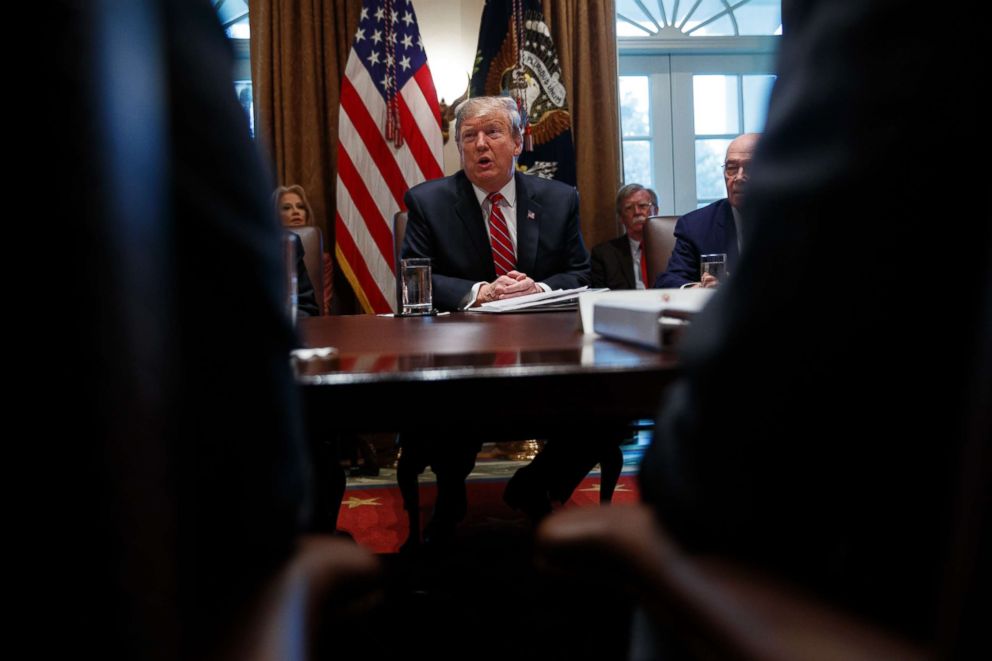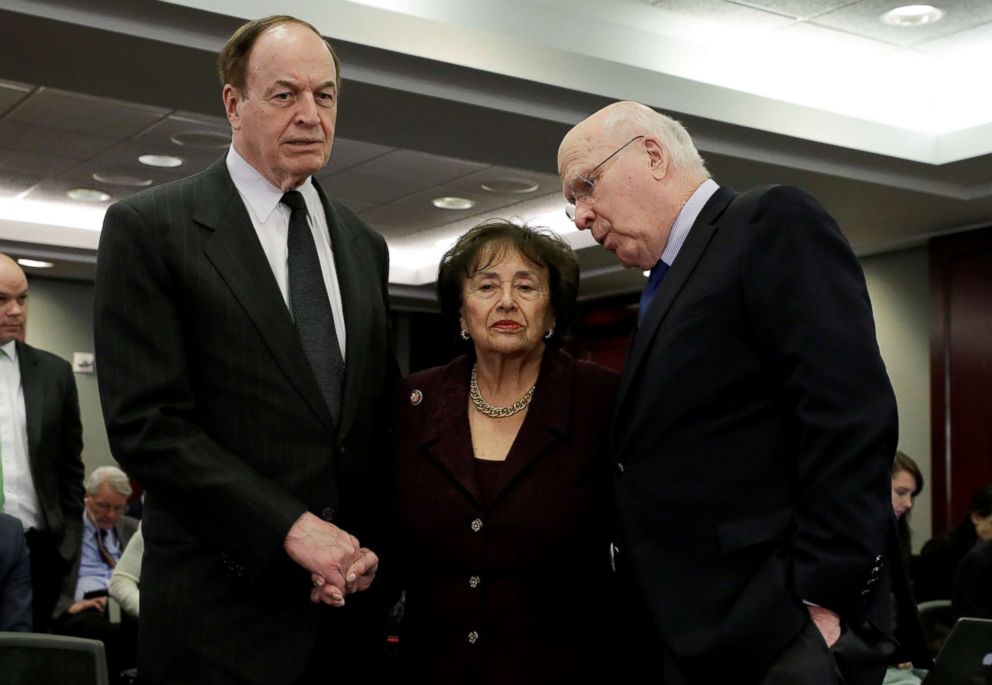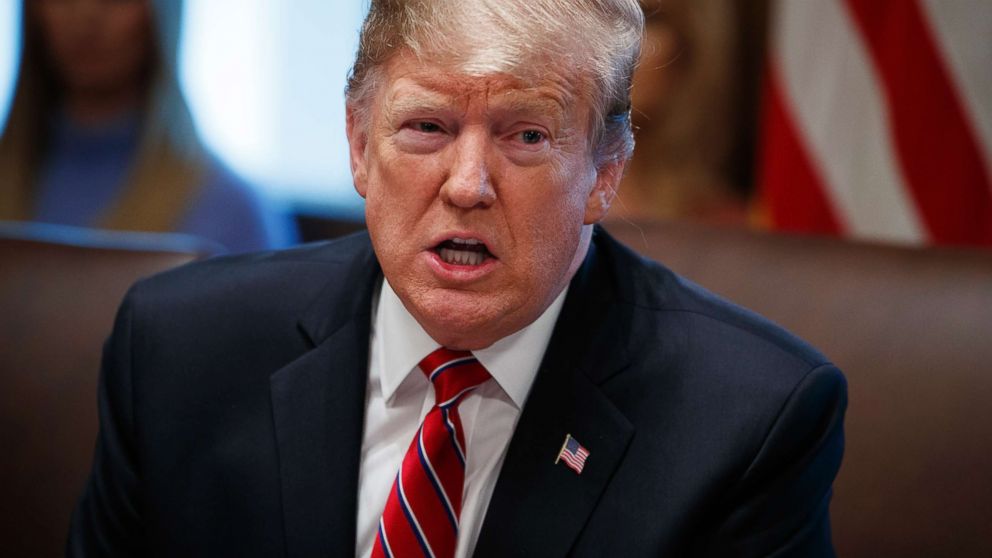Trump 'not happy' with congressional border deal but says shutdown unlikely
President Donald Trump said Tuesday he’s “not happy” with the deal announced by top congressional negotiators Monday night with just a small fraction of the money he wanted for a border barrier but he also said he did not think there would be another partial government shutdown.
"I'm not happy about it. It's not doing the trick, but I'm adding things to it. I will add whatever I have to add. It's all going to happen. We are going to build a beautiful, big, strong wall that's not going to let criminals and traffickers," Trump said in his first reaction to the deal since learning about the details of the agreement struck last night.
He didn't say whether he'd sign or veto the deal if it were to pass Congress but did say he doesn’t think another shutdown will happen. If it does, he said. it “would be totally on the Democrats."
“We certainly don't want to see a shutdown. But you will be hearing fairly soon. The bottom line is, on the wall, we are building a wall. And we are using methods other than this. In addition to this, we have a lot of things going,” Trump said.

On Capitol Hill Tuesday afternoon, Senate Majority Leader Mitch McConnell called the congressional deal a "good step in the right direction. I hope he'll decide to sign it."
"I think he's got a pretty good deal here. I think he's done just fine," McConnell said.
McConnell added that he supports the president taking executive action to “make up the difference” between the barrier money in the deal and the billions more he wants.
"I think he ought to be free to use whatever tools he can legally use to enhance his efforts to secure the border. So, no, I would not be troubled by that,” McConnell told reporters when asked about the possibility the president might use his transfer authority to move money around.
Senate Minority Leader Sen. Chuck Schumer called on the president to sign the bill as well, saying "I hope he doesn't make the same mistake he did a couple of months ago."
In reiterating his determination to build his desired border barrier one way or another, Trump said the possibility of declaring a national emergency remains an option under consideration.
"We are supplementing things and moving things around, and we are doing things that are fantastic. Taking from far less important areas. The bottom line is, we are building a lot of wall. Right now we are building a lot of wall," Trump said.
“I consider everything," he said when asked specifically about a national emergency declaration. "I'm considering everything. We also have national emergencies out there. President Obama, President Clinton, President Bush -- they declared many national emergencies. This is not unique. They declared many national emergencies. Many, many. You have some out there that we can use in addition to one that we can declare if we want to."
The White House has also said there are options under consideration to draw from unspent funds within the government to build the wall without declaring an emergency.
"There are certain sums of money that are available to the president," acting Chief of Staff Mick Mulvaney said during an interview on NBC's "Meet the Press" Sunday. "What we're looking at doing with President Trump is stuff that is entirely legal, stuff that is laid out in law already … there's pots of money where presidents, all presidents, have access to without a national emergency.”
If the administration were to attempt to repurpose funds that were appropriated for other programs, the administration would almost certainly face legal challenges.

The top four negotiators charged with hammering out a deal to avert another partial government shutdown emerged from a closed-door meeting last night to announce that they had “reached an agreement in principle” as the president was in El Paso, Texas, holding his first campaign rally of the year in a border city he has highlighted in his case for building a southern border wall.
Details of the agreement have not been released, but congressional sources told ABC News that it includes $1.375 billion for physical barriers at the southern border.
President Trump had requested more than $5 billion for his prized border wall.
The tentative agreement comes just four days ahead of another potential partial government shutdown.
The bipartisan deal was negotiated by members of the House and Senate Appropriations committees.
Sen. Richard Shelby, an Alabama Republican, told reporters that the agreement will also address all seven spending bills that expired during the last partial government shutdown.
"Our staffs going to be working feverishly to put all the particulars together and that's all we can tell you now without getting into numbers and everything," Shelby said. "But it’s something that is the product of all of our work and we believe if this becomes law, of course, it would open the government."
"Not a single one of us is going to get every single thing we want," Sen. Patrick Leahy, D-Vt., said. "Nobody does. But we’re going to get what is best for the United States."
"I think everyone will say: 'good work,'" Rep. Kay Granger, R-Texas, added.
Rep. Nita Lowey, D-N.Y., said the legislative text of the agreement will be done as soon as they can get it, hopefully by Wednesday.
"Some people may think it’s a great deal. Some may feel differently. But we did it together," she said.
Asked if the White House supports the deal, Shelby said: "We think so, we hope so."
The deal does not address disaster relief.
ABC News' John Parkinson and Mary Bruce contributed to this report.




